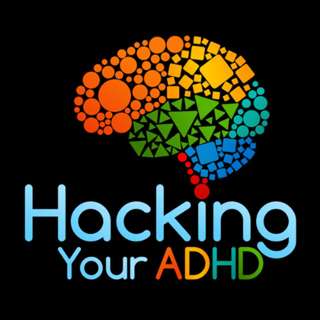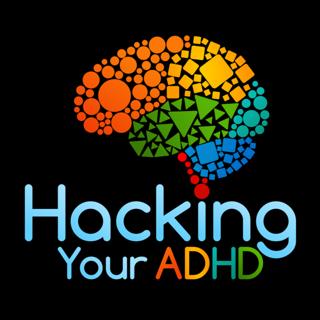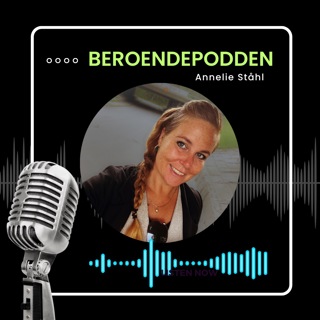
One Year of Podcasting: Interview with Kari Gormley
This week's a little bit different - today you're going to be hearing an interview I had with my friend Kari Gormley - now I say interview with a bit of hesitation because our conversation absolutely did not start out that way. Kari is a Certified Applied Positive Psychology Practitioner, Coach, and Trainer as well as a fellow podcaster - her show is The Flourishing Experiment. but so, I was having a zoom call with Kari and we were just chatting to catch up on a few things and I had mentioned that I had just passed the one year mark on my podcast. She started asking some questions and then went wait wait wait, we need to record this and so we shifted into recording mode and went from there - I know, that's a pretty ADHD way to record a podcast. In this episode you get to hear about some of my lessons learned from podcasting for 1 year - we talk about some of the systems I use, gratitude, and get into something like how long it takes me to produce an episode from start to finish. Go check out Kari's Podcast The Flourishing Experiment Support me on Patreon Connect with me on: Facebook Twitter Instagram or ask me a question on my Contact Page Find the show note at HackingYourADHD.com/oneyear
2 Nov 202021min

Give Yourself Some Slack: Self-Compassion (Part 2)
Last week we started our journey of self-compassion. Self-compassion is key part of cutting ourselves some slack - it's the combination of empathy and action. We're doing the things that'll let us put ourselves at the front of the line when it comes to self-care. But self-compassion isn't easy. When we're being self-compassionate we're trying to relate to ourselves in a way that's forgiving, accepting and loving - many of us have grown up with the view that the only way for us to push ourselves forward is by being overly critical of ourselves. A typical self-compassion practice has three parts: Observing what is going on right now - that's mindfulness Actively developing and building a healthier self-perspective (self-kindness) Connection with others (often called “common humanity”) In this episode, we'll be going over Self-Kindness and Common Humanity as well as looking at how we can combine all three of the ideas. Support me on Patreon Connect with me on: Facebook Twitter Instagram or ask me a question on my Contact Page Find the show note at HackingYourADHD.com/selfcompassion2 This Episode's Top Tips Self-Kindness is about understanding that we have unconditional worth and accepting ourselves even with our short-comings. One way we can practice self-kindness is by being kind to ourselves with our words - one would that can cause lots of harm is the word "should", which often brings connotations of shame and unworthiness. Common-Humanity is about connecting with those around us and understand that what we're going through isn't unique. We're all part of the human experience and even when we're feeling alone we can know that there are people who have also gone through what we're going through. When we put together mindfulness, self-kindness, and common humanity you can create your own practice of self-compassion. When we're being self-compassionate we're able to cut ourselves some slack and learn to be happier with who we are.
26 Okt 202018min

Give Yourself Some Slack: Self-Compassion (Part 1)
In this episode we're going to focus on the difficulties of self-compassion and then talk a little about mindfulness - next week we'll be going into the ideas of self-kindness, common humanity, and some other ideas I've been playing with. Support me on Patreon Connect with me on: Facebook Twitter Instagram or ask me a question on my Contact Page Find the show note at HackingYourADHD.com/selfcompassion This Episode's Top Tips Self-compassion can help with ADHD because it can help us realize that our self-image and self-doubts are not hardwired - we can change and we don't have to beat ourselves up to make that change happen. We need to understand the difference between guilt and shame. Guilt is: I did a bad thing. Shame is: I'm a bad person. Guilt is a healthy coping mechanism, while shame can lead to self-destructive habits and behaviors. One of the most effective ways to counteract shame is to shine a spotlight on it, but be sure to do so only when you're in a safe supportive environment. Mindfulness is a way that we can practice seeing the world for how it really is - a great mindfulness exercise is the 5-4-3-2-1 grounding exercise where you list 5 things you can see, 4 things you can feel, 3 things you can hear, 2 things you can smell and 1 thing that you can taste.
19 Okt 202019min

Q&A: Writing Past the Hard Parts
In today's episode, we have a listener question about writing and how to get back into it after quitting at the hard parts. Support me on Patreon Connect with me on: Facebook Twitter Instagram or ask me a question on my Contact Page Find the show note at HackingYourADHD.com/writingpast This Episode's Top Tips Use prewriting to focus your thoughts and to help build your momentum into writing so that you aren't relying so much on inspiration to keep working on your project. Create notes as you're writing so that you know what you were working on when you come back to it and to record ideas as they come to you so that you're not jumping around the page so much. You can't skip Day 2 - you've got to forge through the messy middle if you want to get to the other side. Knowing this ahead of time can help you plan on how to get through the hard parts. One of the most powerful ways you help get yourself through that messy middle is to find an accountability partner. Your accountability partner won't make your work easier - instead, they just help provide perspective and let you see that you can actually do the things you want to do.
12 Okt 202018min

Give Yourself Some Slack: Perfectly Imperfect
One of the reasons that many of us have trouble giving ourselves slack is because of our internalized perfectionism - it's something that controls our workflow and prevents us from ever taking a break because in our head we know we could be doing more. Even during the writing of this episode I had to fight off some of this internal perfectionism - this episode wasn't supposed to be entirely about perfectionism, but it was going to take a lot more than just one section to really tackle the topic - so now what was just going to be a two-part episode on giving yourself some slack is a series - and had I come into this knowing it was going to be a series I would have definitely approached it differently, but that's okay, it doesn't have to be perfect. In today's episode, we're going to be exploring the idea of how perfection acts as a coping mechanism - and why that's not a great thing. We'll also be looking at some of the different types of perfectionism and then we'll be exploring some of the ways that we can start to work on conquering our own perfectionism. Support me on Patreon Connect with me on: Facebook Twitter Instagram or ask me a question on my Contact Page Find the show note at HackingYourADHD.com/perfectlyimperfect This Episode's Top Tips Many of us with ADHD have picked up perfectionism as a coping mechanism to try and deal with the mistakes that have come from us having ADHD - however, perfectionism is a maladaptive coping mechanism that often leads to more problems than it solves There are three types of perfectionism - self-oriented perfectionism, other-oriented perfectionism and socially-prescribed perfectionism. The first step in dealing with our perfectionism is understanding that our perfectionist expectations of ourselves are unrealistic and that having those unrealistic expectations is unhealthy - if we can relax those standards we will often save time, effort, and stress. Practice Imperfection by choosing small tasks that you can be imperfect at, such as using multiple colors of pens (without a pattern), not correcting typos in texts to friends or even something like wearing mismatched socks (I mean as long as they're the same kind - I just mean two socks with different colors or patterns not like wool socks and cotton socks, I'm not a monster). Look for feedback before you're 100% done with a project - try out asking for feedback at 30% and 90% and be sure to be specific about the type of feedback you're looking for at each point.
5 Okt 202019min

How To Give Yourself Some Slack
Often when I think about productivity I envision something like a well-oiled machine - everything fits together, everything has it's placed and when it is running smoothly it produces amazing results. But the part that my imagination doesn't usually pick up are a few important words - well-oiled machine... what does it mean to be well oiled - well, for one thing, it means that there is someone maintaining the system. It means, that left to its own devices that the machine would breakdown - and for a machine like this, it means it's either running at peak capacity or not at all. As you can imagine this isn't exactly the route we want to be going - we're going to have setbacks in life and we're going to have times where we have to do less - we're not machines. In today's episode, we're going to be exploring this idea of capacity, as well how we sometimes go above and beyond and then also how we can work on build some slack into our systems. Support me on Patreon Connect with me on: Facebook Twitter Instagram or ask me a question on my Contact Page Find the show note at HackingYourADHD.com/buildingslack This Episode's Top Tips Always doing more isn't always our best option - it is easy for us to overreach our capacity and find ourselves doing more than we're able to handle. Once we get past capacity we're more like to drop the ball on everything we're doing. Giving ourselves breathing room isn't being lazy, it's a way for us to focus on what's most important. When we're in times of crisis many people with ADHD can thrive by using their surge capacity - however, our surge capacity is limited and we can only access it for so long before we start burning out. We can add more capacity to our schedules by adding more slack to our calendars - that is buffer time that allows us to "pick up the slack" when we're running overtime on something unexpected or just need more time to finish something than we thought we would.
28 Sep 202018min

Building Gratitude
One of the hottest trends to come out of the self-help world over the last few years is gratitude. And it's no surprise, gratitude has been found to be one of the greatest indicators of overall well being. I'm usually pretty skeptical about things that get hyped quite as much as gratitude has been - I mean when you see the list of things that a gratitude practice can help with it's pretty easy to roll your eyes. I mean can gratitude really do all those things that people say it can? Today we'll be exploring the mechanisms that make gratitude work - and also perhaps tempering some of the hype around it - then we'll be looking at ways we can find things to be grateful in our lives as well as looking at some ways that we can start a gratitude practice. And I'll admit, this episode is a little less ADHD focused - but gratitude was something that was on mind, for reasons that I get into during the episode. And so even though this episode is a little less ADHD specific I still think everyone can get a lot out of it. Support me on Patreon Connect with me on: Facebook Twitter Instagram or ask me a question on my Contact Page Find the show note at HackingYourADHD.com/gratitude This Episode's Top Tips Gratitude is showing thanks and appreciation and it has a tremendous impact on our brains. Gratitude can help us release build our relationships, regulate stress, improve sleep quality, build self-esteem and make us happier. One way we can practice gratitude is through mindfulness and seeing all the things in our lives that are going right. It's easy for us to latch onto the negative things that happen during our day. We'll miss all the things that went right because when things go according to plan they can often become invisible. We can also practice gratitude by journaling or writing a letter to someone in our lives that has greatly impacted us.
21 Sep 202019min

When To Quit
The first thing we've got to understand is that when we ask, when should I quit? We're also asking, when should I persevere? And they often serve as the same answer - I should quit when it doesn't make sense to keep going. I keep going when it doesn't make sense to quit. Unfortunately is really easy to get those messages mixed up and with ADHD we've all got a trail of unfinished projects and ideas that are weighing us down every time we need to make this decision again. Support me on Patreon Connect with me on: Facebook Twitter Instagram or ask me a question on my Contact Page Find the show note at HackingYourADHD.com/whentoquit This Episode's Top Tips We've got to give up the notion that winners never quit. Persistence doesn't guarantee success - we can persist at the wrong things forever and never make progress. There are two curves we've got to look for when starting something new - the dip and the cul-de-sac. A cul-de-sac is a dead end. The dip is the point where things start to get hard - we've got to stop quitting things when they get hard and embrace the dip. We'll often stick out things we should quit. There are a lot of reasons that we might stick something out like the sunk cost fallacy or the planning fallacy. Regardless of why we're sticking around, once we realize that we're in a dead-end we've got to accept that we need to quit and try something new.
14 Sep 202018min






















